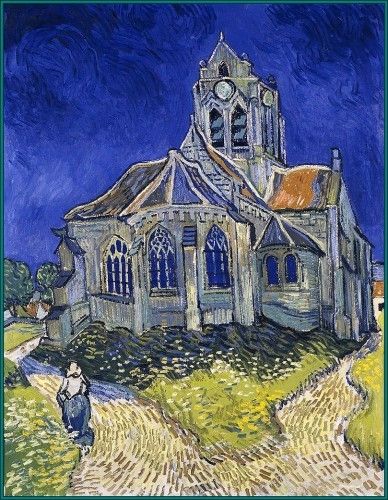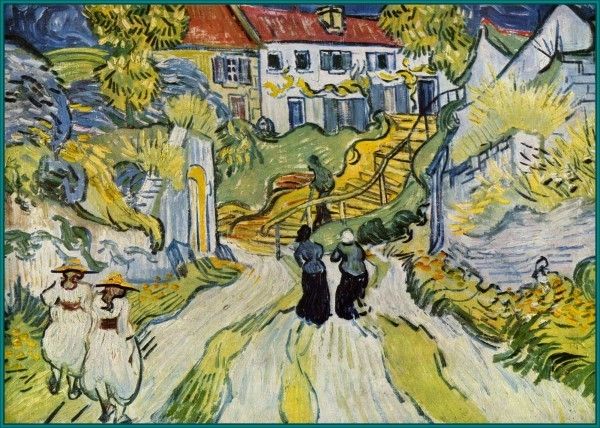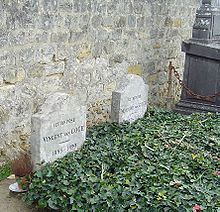April 1, 1996 |
Travel Feature
Maison Ravoux: In the Footsteps of Vincent Van Gogh

The Church Van Gogh painted in Auvers-sur-Oise
Twenty two miles from Paris --- by bus or train or car --- Auvers-sur-Oise lives in the past. The same quaint village that drew such artists as Pissaro, Daumier and Cezanne now draws the curious, like us, intent on walking in the footsteps of Vincent Van Gogh.
The troubled artist came from Paris by train in May of 1890, found Auvers "profoundly beautiful" as he wrote his brother Theo, and in just ten weeks completed an explosion of work --- 70 paintings, oil studies, drawings. We arrive in time to visit the small cemetery before dinner. We are surprised to find it is so accessible, that we can stand so close. It is moving to see Vincent and Theo lie side by side under a coverlet of tangled ivy that binds them together forever.

With a "passport" and map purchased from the House of Van Gogh we can tour the village and see many of the same images Vincent and Cezanne saw. Reproductions of each canvas they painted stand on the spot where they set their easels. Mingling with these ghosts stirs emotions. A drink seems called for, so we retreat to the Maison Ravoux to our reserved table (call 33-1-34 48 05 47) in the rustic country inn where Van Gogh boarded.
We are the sole pilgrims dining with a handful of locals. The waitress sets a country terrine on the table in its baking dish and a crock of pickles so we can help ourselves. The menu is modest: Leg of lamb cooked till its falls apart. A crisp brown hash of pig's feet and oxtail. Chicken braised in cream. The same homey country cooking the artist might have eaten a century earlier. And delicious. As Auberge guests we are invited up the narrow creaking stairs afterward.

Only five at a time can enter his room, austerely furnished as it was then when he slept with many of his most famous paintings stacked under his bed. Next door we sit for a short sound and slide show -- grainy photographs of 1890 Auvers fade into the color and intensity of his paintings. It is easy to imagine that it is his voice reading from haunting letters to brother Theo. "The prospect grows darker, I see no happy future at all."
As devotees of his work, we know the end. The shot, the lingering last night, his death at 37. The intimacy of the experience is incredibly moving.
***
This article first appeared in an edited form in September1996 Penthouse.
Click here to return to Travel Index.